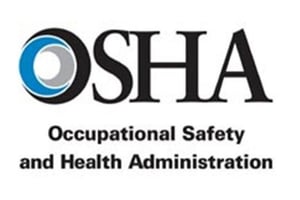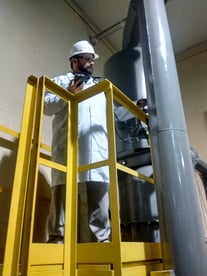 OSHA is issuing citations and fines to companies with unsafe combustible dust hazards, using their general duty clause and NFPA 652: Standard on the Fundamentals of Combustible Dust as a guideline. Any industrial facility that creates dusts or uses powders was mandated by NFPA 652 to complete a Dust Hazard Analysis by September, 2020 to identify the presence of combustible dusts and establish a plan for eliminating or mitigating potential risks associated with these dusts in their facilities. The DHA is essentially the framework around which NFPA 652 is built, and the starting point for getting a facility into compliance with the standard as a whole.
OSHA is issuing citations and fines to companies with unsafe combustible dust hazards, using their general duty clause and NFPA 652: Standard on the Fundamentals of Combustible Dust as a guideline. Any industrial facility that creates dusts or uses powders was mandated by NFPA 652 to complete a Dust Hazard Analysis by September, 2020 to identify the presence of combustible dusts and establish a plan for eliminating or mitigating potential risks associated with these dusts in their facilities. The DHA is essentially the framework around which NFPA 652 is built, and the starting point for getting a facility into compliance with the standard as a whole.
Dust Hazard Analysis (DHA) Complexity
The complexity of performing a DHA varies with the complexity of the facilities and processes being analyzed. For instance, a small wood cabinet making shop with a limited number of dust generating machines will present a less daunting task than a large scale manufacturing facility that use powdered raw materials and performs cutting and grinding of its finished product. It should also be noted that performing a DHA should not be viewed as a “one and done” procedure that is completed and forgotten. As new processes or raw materials that have the potential for impacting a facility’s combustible dust profile are introduced in the facility, the DHA needs to be modified to incorporate these changes accordingly.
Dust Hazard Analysis (DHA) Preparation

Preparation for a Dust Hazard Analysis can also be incorporated into a more comprehensive review of a facility’s dust collection system that examines overall system design, efficiency, and safety. Aerodyne Environmental’s Dust Efficiency Clinic offers dust collection system evaluation services that do just that. An Aerodyne dust collection specialist will review a facility’s equipment, installation, controls, and protective devices with an eye toward improving overall system performance, decreasing maintenance costs, prolonging equipment life, and improving safety and regulatory compliance.
Dust Hazard Analysis (DHA) Report
At the end of the system review, a report is generated that summarizes the existing state of the dust collection system and offers targeted suggestions for areas that can be improved. This valuable service offers facility and plant managers outside expertise in boosting the performance and safety of their systems, and is a logical first step in preparation for a DHA.
To learn more about Aerodyne’s Dust Efficiency Clinic consulting services, call Dan Navicky at (440) 543-7400 or tollfree at (800) 358-7546, or email dc@dustcollectorhq.com.
